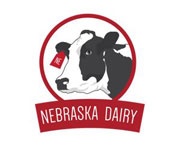The information below has been supplied by dairy marketers and other industry organizations. It has not been edited, verified or endorsed by Hoard’s Dairyman. 
Grow Nebraska Dairy is promoting the “First Mover Advantage”—the concept that the next dairy processor to locate in the state will have the pick of the litter in terms of location as well as the first opportunity to establish relationships with the state’s dairy farmers for their supply of milk.
The group will tout Nebraska’s distinct advantages in terms of dairy processing: a good supply of high quality milk, low energy costs, abundant water, an attractive regulatory environment, business incentives, market access and communities already vetted and on record as being ready to welcome a dairy processor.
While Grow Nebraska Dairy is interested in increasing the number of dairy operations in the state, dairy farmers need a local market for the milk they produce. “Attracting the right processor is the first domino to fall,” said Rod Johnson, executive director of the Nebraska State Dairy Association. “Once that happens, our existing dairy producers will quickly expand and new producers will come.”
The group is especially focused in identifying prospective processors who can initially use two to three million pounds of milk annually and then grow as the state’s dairy production grows. “This is the ideal place for an artisan cheese maker, for example,” Johnson added. “Nebraska has the current capacity to meet that demand with no problem.”
Grow Nebraska Dairy includes representatives of the Nebraska State Dairy Association, Nebraska Department of Agriculture, Nebraska Department of Economic Development, Nebraska Public Power District, the University of Nebraska, and the Alliance for the Future of Agriculture in Nebraska (AFAN).

The Beef State is looking to add more dairy processing to its value-added livestock portfolio. Representatives of the Grow Nebraska Dairy coalition will attend the World Dairy Expo in Madison, Wisconsin, this week to meet with prospective dairy processors as part of an aggressive and integrated recruitment effort.
Grow Nebraska Dairy is promoting the “First Mover Advantage”—the concept that the next dairy processor to locate in the state will have the pick of the litter in terms of location as well as the first opportunity to establish relationships with the state’s dairy farmers for their supply of milk.
The group will tout Nebraska’s distinct advantages in terms of dairy processing: a good supply of high quality milk, low energy costs, abundant water, an attractive regulatory environment, business incentives, market access and communities already vetted and on record as being ready to welcome a dairy processor.
While Grow Nebraska Dairy is interested in increasing the number of dairy operations in the state, dairy farmers need a local market for the milk they produce. “Attracting the right processor is the first domino to fall,” said Rod Johnson, executive director of the Nebraska State Dairy Association. “Once that happens, our existing dairy producers will quickly expand and new producers will come.”
The group is especially focused in identifying prospective processors who can initially use two to three million pounds of milk annually and then grow as the state’s dairy production grows. “This is the ideal place for an artisan cheese maker, for example,” Johnson added. “Nebraska has the current capacity to meet that demand with no problem.”
Grow Nebraska Dairy includes representatives of the Nebraska State Dairy Association, Nebraska Department of Agriculture, Nebraska Department of Economic Development, Nebraska Public Power District, the University of Nebraska, and the Alliance for the Future of Agriculture in Nebraska (AFAN).





